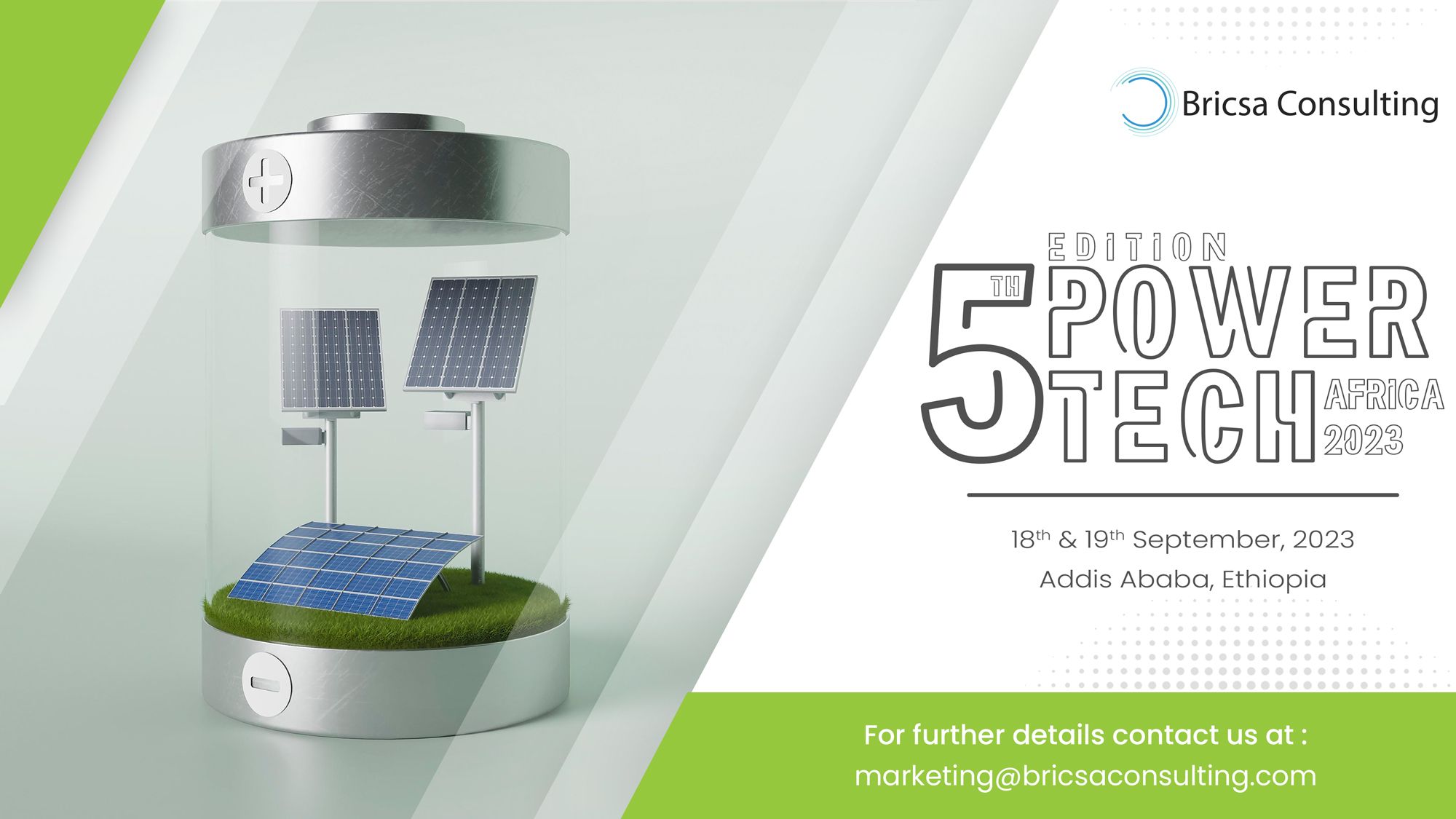Date: 18 – 19 September 2023
Location: Addis Ababa - Ethiopia
Description: Ethiopia has a population of 120 million inhabitants and strong economic growth and therefore has a rising demand for electricity, that is why the Government will invest 40 billion dollars over the next ten years to expand its hydroelectric power generation capacity as well as the use of renewable sources such as solar, wind and geothermal. Moreover, comprehensive reforms are implemented to attract investment to that sector, including the restructuring of public service companies, the introduction of a new public-private partnership framework and paving the way to become a regional energy provider, as part of the East Africa Energy Group.
Ethiopia Electric Power signed an agreement with IFC to advise on developing up to 500MW of solar power under the initiative. Although Ethiopia has vast renewable energy potential, it currently has an energy shortfall of 500MW, with over 70% of its energy coming from hydropower.
Ethiopia has one of the biggest electricity access deficits according to the UN Department of Economic and Social Affairs, which highlighted that the top 20 access-deficit countries account for 81% of the global population without access to clean tech and fuels. Ethiopia’s 10-Year Development Plan articulates a commitment to universal access to clean, reliable, and affordable energy by 2030.
The global trends indicated that investing in renewable energy is investing in a future profitable to all. The investments in renewable energy in 2018 were three folds higher than the amounts invested in coal and gas fired generators. According to the report from International Renewable Energy Agency, at the end of 2018, global renewable generation capacity amounted to 2351 GW of which hydro accounted for the largest share of the total, with an installed capacity of 1172 GW, followed by wind and solar energy that accounted capacities of 564 GW and 486 GW respectively.
As per the World Bank Group, roughly 1 billion people or 13% of the world’s population live without electricity. Between 2014 and 2018, the World Bank provided more than $11.5 billion in financing for renewable energy and energy efficiency in Africa. They could meet nearly a quarter of the energy needs from indigenous and clean renewable energy by 2030.
With this insight and the ensuing opportunities in the neighbouring countries of Uganda, Rwanda, Ethiopia and Tanzania, Bricsa Consulting is committed to host the 5ᵗʰ Edition PowerTech Africa 2023, a 2 day exclusive closed-door gathering of senior renewable practitioners from both public and private sectors across the world with a keen interest to participate in the growth and development opportunities in the region.






















